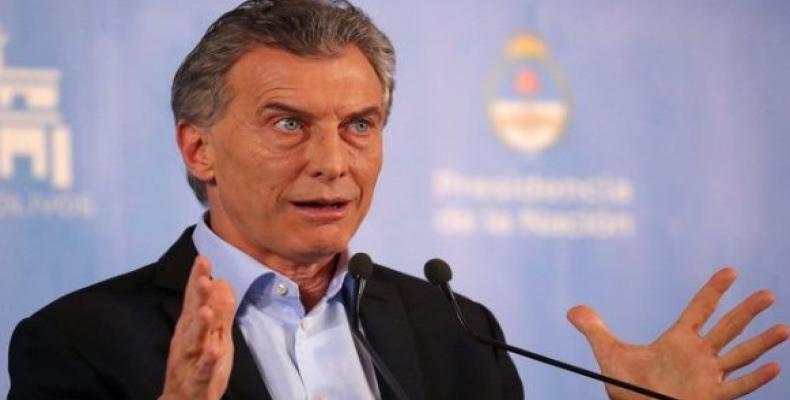Buenos Aires, September 7 (RHC)-- Argentinean authorities are announcing additional measures that President Mauricio Macri hopes will end the country's economic downward spiraling, including increasing farm export taxes.
Treasury Minister Nicolas Dujovne claimed that to reduce Argentina's 2019 primary deficit -- its borrowing needs before debt servicing -- in an effort to stem the peso's three-month double devaluation from 20 to over 41 percent of the dollar.
It's expected that the administration will increase its tax on soy and corn exports, at a yet disclosed amount, in order to cut its primary deficit to 1.3 percent of gross domestic product (GDP) as part of an International Monetary Fund (IMF) deal agreed upon in June.
President Macri had to plea to the IMF heads for an emergency advance on its $50 billion loans from the fund last week as the peso bottomed out at 41 percent, some 16 percent lower than the previous week. The IMF has already distributed some US$15 billion of the three-year loan to the Argentine Central Bank.
The new policies, which will also include shrinking about 10 ministries, including the Agroindustry Ministry, and the June loan are meant to allay international investor fears regarding Latin America's third-largest economy.
Jeffrey Lamoreaux, senior analyst at Fitch Solutions in New York said that investors want to see further primary deficit cuts and are hoping for a combination of agricultural export taxes and reductions in subsidies and social spending in order to meet next years deficit goal.
Each month of 2018 has seen over 4,300 job layoffs, half of which have been in the public sector. Since Macri took office in 2015 and last July more than 73,800 jobs, both private and public, have been lost, according to the Observatory of Foreign Trade, Production and Employment (CEPE).
The agricultural sector has been Macri's biggest proponent. The powerful farm lobby backed his business-friendly platform in both the 2015 presidential elections and the 2017 mid-term legislative elections.
A return of export taxes would mark a major reversal. Macri eliminated corn and wheat export taxes shortly after taking office. He also began gradually lowering taxes on soy and soy products last May by a half a percent, according to Reuters. Argentina is the world's third largest raw soybean exporter and first in soybean meal and oil.
Two former economic officials in Macri's government suggested export taxes are short-sighted and ineffective. "I never believed in that measure as a permanent option but this is a fire," Carlos Melconian, who served as chief of state-run Banco Nacion during the first year of Macri's term.
Luciano Cohan, the former undersecretary for macroeconomic programming under Macri, tweeted that a 5 percent export tax on all goods, not just agricultural products, would raise between $3.5 billion and $4 billion in revenue next year.


